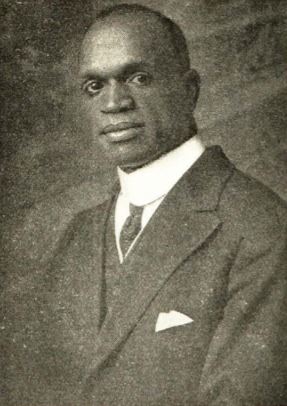Augustus Granville Dill facts for kids
Augustus Granville Dill (born November 30, 1882 – died March 8, 1956) was an important American scholar and activist. He was born in Portsmouth, Ohio. He earned his first college degree (B.A.) from Atlanta University in 1906. He then went to Harvard, where he earned another B.A. in 1908 and a master's degree (M.A.) in 1909.
While at Harvard, Augustus Dill was mentored by the famous leader W. E. B. Du Bois. Dill was a member of the NAACP. He had many different jobs, including being the business manager for The Crisis magazine and The Brownies' Book. The Brownies' Book was a special magazine for African-American children. It helped them feel good about themselves. Dill was also a musician, playing the piano. He made big contributions to understanding race relations in the workplace. He passed away at age 73 in Louisville, Kentucky.
Contents
Early Studies and Writings
As a student of W. E. B. Du Bois, Augustus Dill helped edit several important studies. These included "The College-Bred American Negro" (1911) and "The Common School and the Negro American" (1912). He also worked on "The Negro American Artisan" (1912) and "Morals and Manners Among Negro Americans" (1914).
"Morals and Manners Among Negro Americans" was a study that collected information from African Americans across the country. It helped to see how society was changing. These works showed the unfair treatment and racial differences that existed in the early 1900s. This was a time when Jim Crow laws were common in the United States. These laws enforced segregation and discrimination.
His Work in the Harlem Renaissance
The Crisis was a very important magazine during the Harlem Renaissance. This was a time when African-American art and culture thrived. The magazine was written by African Americans and had a big influence on the movement. Augustus Dill was the business manager for The Crisis. He knew Langston Hughes, a famous poet who sent many of his poems to the magazine.
In 1928, Augustus Dill stopped working for The Crisis. W.E.B. Du Bois, who was the editor, made this decision. After this, Dill mostly stopped his literary work. He earned his living by playing the piano and teaching music lessons. Later, Du Bois wrote in his autobiography that he regretted his decision about Dill. He said he felt bad about how he handled the situation.
“I dismissed my co-worker [Augustus Dill] forthwith, and spent heavy days regretting my act.”
Contributions to Labor Rights
One of Augustus Dill's most important contributions was "The Negro American Artisan." He wrote this study with W. E. B. Du Bois and Florence Kelley. This was a big research project supported by Atlanta University. It looked at the lives of skilled African-American workers from 1902 to 1912.
The study explored topics like their education, job opportunities, wages, and types of work. A key part of the 1912 edition was about "The Negro and Organized Labor." This section looked at two main points. It studied how African-American workers felt about labor unions. It also examined how labor unions treated African-American workers.
The authors collected information on unions that accepted African Americans. Examples included the United Mine Workers of America. They also looked at unions made only for Black workers, like "The American Brotherhood of Cement Workers." They even studied unions that completely excluded Black workers, such as "Order of Railway Conductors of America." This study showed the unfair challenges faced by African-American workers in the early 1900s.
The "Talented Tenth" Idea
After the Reconstruction period, there were two main ideas about education for Black Americans. These ideas came from W. E. B. Du Bois and Booker T. Washington. They had different thoughts on how African Americans should achieve equality.
Booker T. Washington believed in practical, industrial education. He thought that economic success should come before fighting for civil rights. Du Bois, however, believed in a classical, academic education. He imagined a group of highly educated African Americans he called the "talented tenth." He believed this group would lead the African-American community to equality.
Augustus Granville Dill is a great example of Du Bois's "talented tenth." His work often involved organizing and researching. He didn't just join labor unions himself. With his strong education, he rose in the ranks of the NAACP. He also became an editor for The Crisis magazine. His efforts helped bring attention to the unfair treatment of African Americans in jobs and labor.


